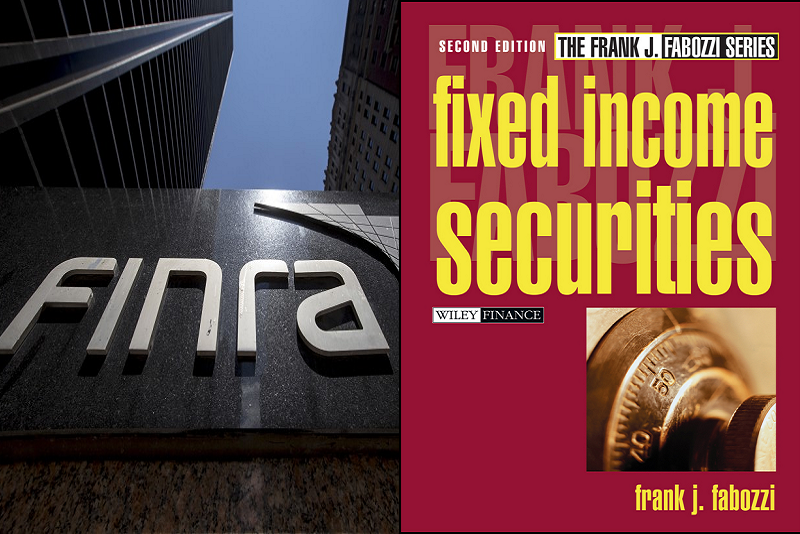BROWSE BY TOPIC
- Bad Brokers
- Compliance Concepts
- Investor Protection
- Investments - Unsuitable
- Investments - Strategies
- Investments - Private
- Features/Scandals
- Companies
- Technology/Internet
- Rules & Regulations
- Crimes
- Investments
- Bad Advisors
- Boiler Rooms
- Hirings/Transitions
- Terminations/Cost Cutting
- Regulators
- Wall Street News
- General News
- Donald Trump & Co.
- Lawsuits/Arbitrations
- Regulatory Sanctions
- Big Banks
- People
TRENDING TAGS
Stories of Interest
- Sarah ten Siethoff is New Associate Director of SEC Investment Management Rulemaking Office
- Catherine Keating Appointed CEO of BNY Mellon Wealth Management
- Credit Suisse to Pay $47Mn to Resolve DOJ Asia Probe
- SEC Chair Clayton Goes 'Hat in Hand' Before Congress on 2019 Budget Request
- SEC's Opening Remarks to the Elder Justice Coordinating Council
- Massachusetts Jury Convicts CA Attorney of Securities Fraud
- Deutsche Bank Says 3 Senior Investment Bankers to Leave Firm
- World’s Biggest Hedge Fund Reportedly ‘Bearish On Financial Assets’
- SEC Fines Constant Contact, Popular Email Marketer, for Overstating Subscriber Numbers
- SocGen Agrees to Pay $1.3 Billion to End Libya, Libor Probes
- Cryptocurrency Exchange Bitfinex Briefly Halts Trading After Cyber Attack
- SEC Names Valerie Szczepanik Senior Advisor for Digital Assets and Innovation
- SEC Modernizes Delivery of Fund Reports, Seeks Public Feedback on Improving Fund Disclosure
- NYSE Says SEC Plan to Limit Exchange Rebates Would Hurt Investors
- Deutsche Bank faces another challenge with Fed stress test
- Former JPMorgan Broker Files racial discrimination suit against company
- $3.3Mn Winning Bid for Lunch with Warren Buffett
- Julie Erhardt is SEC's New Acting Chief Risk Officer
- Chyhe Becker is SEC's New Acting Chief Economist, Acting Director of Economic and Risk Analysis Division
- Getting a Handle on Virtual Currencies - FINRA
ABOUT FINANCIALISH
We seek to provide information, insights and direction that may enable the Financial Community to effectively and efficiently operate in a regulatory risk-free environment by curating content from all over the web.
Stay Informed with the latest fanancialish news.
SUBSCRIBE FOR
NEWSLETTERS & ALERTS
Fixed Income Mark-Up Disclosures (FINRA Exam Findings – Part 3)
[Image: Book Cover to 'Fixed Income Securities, 2nd Edition / by Frank J. Fabozzi]
by Howard Haykin
In 2018, FINRA and the MSRB amended FINRA Rule 2232 (Customer Confirmations) and MSRB Rule G-15, requiring firms to provide or disclose:
- additional transaction-related information to retail customers for trades in corporate, agency and muni bond securities - including the mark-up/mark-down amount (in $ and %) for principal trades with retail customers that a firm offsets on the same day with other principal trades in the same security.
- time of execution and a security-specific link to the FINRA or MSRB website where additional information about the transaction is available, along with a brief description of the information available on the website.
FINRA 2018 FINDINGS – WHAT WENT WRONG. Some member firms failed to comply in full with these rule changes, due to issues related to their confirmation review processes, systems and vendors. Here are FINRA’s selected findings:
- Failure to Enter Information into Firms’ Order Entry Systems – Traders didn’t enter all necessary info – e.g., the Percentage of Prevailing Market Price (“PMP”) - into the firms’ order entry systems. This resulted in inaccurate mark-ups or mark-downs, or failures to disclose when required.
- Improper Adjustments to PMP – Some firms adjusted the PMP in their order entry systems to subtract registered reps’ concession or sales credit from the mark-up. This resulted in inaccurate disclosures on customer confirms.
- Inadequate Disclosure for Trades Conducted on an Agency Basis – Some firms failed to provide the security-specific hyperlink and time of execution on trade confirms.
- Failure to Provide Disclosure for Structured Notes – Some firms didn’t realize that trades in TRACE-reportable structured note are subject to FINRA Rule 2232. In some cases, clearing firms didn’t provide the mark-up on confirms because they hadn’t received the PMP from the structured note distributors.
- Incorrect Designation of Institutional Accounts – Some firms failed to provide disclosures to certain customers that were misidentified as “institutional,” even though they did not meet that definition in FINRA Rule 4512(c) (Customer Acct Information) or MSRB Rule G-8(a)(xi).
- Improper Security-Specific Hyperlinks and Brief Descriptions – Several firms failed to include a brief description and/or the security-specific hyperlink; such information is available on the security-specific web page.
- Vendor Challenges – Some vendors didn’t always identify the correct PMP from which to calculate mark-ups and mark-downs – e.g., instead of using the prices of a firm’s own contemporaneous trades, which were available to be considered, a vendor’s program incorrectly identified PMPs using lower levels of the “waterfall” as described in FINRA Rule 2121.02 (Fair Prices and Commissions) or MSRB Rule G-30.06.
This being the 3rd post in a series of postings on FINRA findings from its 2018 examinations, we invite you to read other Financialish posts in this series:





